Have you ever had your RV converter not charging your battery despite being connected to a power source? It is not only frustrating but also a problem that can leave you stranded and unable to use your RV appliances. The RV converter is an essential component that ensures your battery is charged for the smooth running of appliances in your RV. In this blog post, we will discuss how to fix an RV converter not charging the battery.
Table of Contents
RV Converter: What It Is And What It Does
If you’re an avid RV owner or planning to purchase one soon, you might have heard about the RV converter. It is a vital component of your RV that you should understand to keep your RV’s electrical system running smoothly. For the beginning, let’s discuss what an RV converter is, how it works, and why it is essential to have it in your RV. So, let’s dive in!
The RV converter, also referred to as a power center, is a device that converts 110 V AC electrical power into 12 V DC electrical power. This device is essential for operating various electric appliances in your RV, such as lights, air conditioners, fans, and refrigerators. Moreover, it also charges your RV’s battery whenever it is connected to shore power. [1]
An RV converter is equipped with several circuits, including transformers, diodes, and capacitors, responsible for converting incoming AC power into DC power. The converter’s primary function is to regulate the voltage to 12 V DC and maintain it at the right level. Other RV components like battery chargers, voltage regulators, and inverters may also be integrated into the RV converter system, depending on specific RV models. [1]
Why is an RV converter important? An RV converter is significant for several reasons. Firstly, it allows your RV to run on AC power when connected to a power source and ensures that the battery is adequately charged. Secondly, it helps prevent electrical damage to your RV’s appliances by regulating the voltage. RV converters also ensure that you have access to power even when you’re not plugged in, which is particularly useful when you’re boondocking.
How to maintain an RV converter? To maintain your RV converter, you should regularly check its electrical connections, clean it regularly, and replace worn-out parts. Additionally, you can protect it from damage by limiting the power loads you put on it, avoiding plugging in too many devices at once, and being careful not to overload your RV’s electrical system.
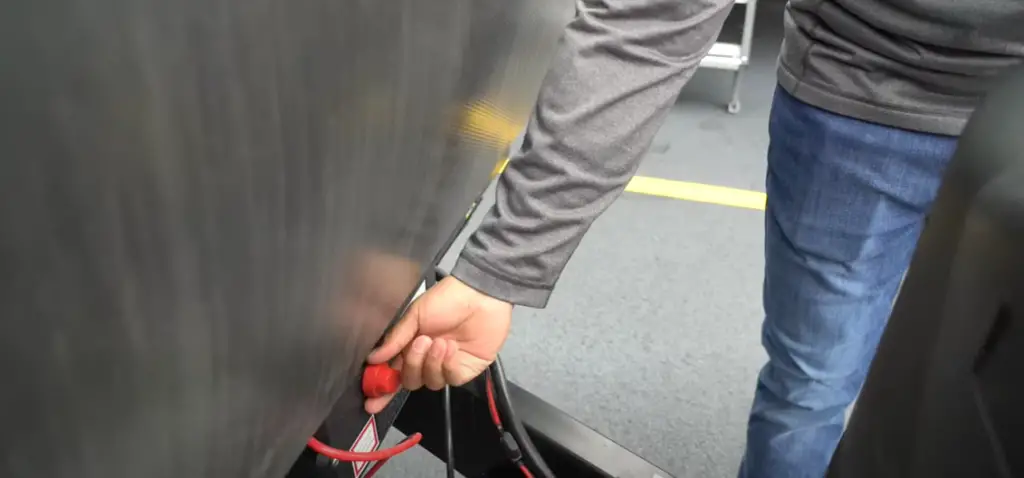
A Brand New RV Converter’s Prices
Before we dive into pricing specifics, let’s start with a quick overview of what an RV converter is, and why it’s essential to your RV setup. Essentially, a converter is a device that converts AC (alternating current) power from a campground or generator into DC (direct current) power that can be used to charge your RV’s battery and power your appliances and electrical systems. Without a high-quality converter, you risk damaging your batteries or overloading your circuits, which can result in costly and dangerous electrical issues. Thus, investing in a reliable converter is a smart move for any RV owner.
Now, onto the fun stuff: pricing. The cost of a brand new RV converter can vary widely depending on factors such as brand, model, features, and seller. Generally speaking, you can expect to spend anywhere from $100 to $500 on a new converter, with the average price falling in the $250-300 range. Of course, the higher-end models with advanced features such as automatic voltage regulation, surge protection, and smart charging capabilities may run upwards of $400-500. However, keep in mind that investing in a top-quality converter now can save you money in the long run by preventing costly repairs and replacements down the line.
If you’re looking to find the best deal on a brand new RV converter, there are a few strategies you can employ. First, research different brands and models to find the one that best suits your needs and budget. Consider factors such as power output, efficiency, and warranty when making your decision.
So, what are some of the top brand new RV converters on the market today? Some fan favorites include the Progressive Dynamics PD9130L with its lightweight design and reliable performance, the WFCO WF-8955PEC with its automatic three-stage charging and overload protection features, and the Xantrex Freedom XC with its advanced Power Factor Correction technology and easy-to-read LCD screen display. Of course, your choice will ultimately depend on your individual RV needs and preferences.
One final tip for purchasing a brand new RV converter: don’t forget to take into account installation costs. While some converters come with easy plug-and-play installation, others may require professional installation, which can add several hundred dollars to your overall cost. Be sure to factor this in when budgeting for your new converter purchase.
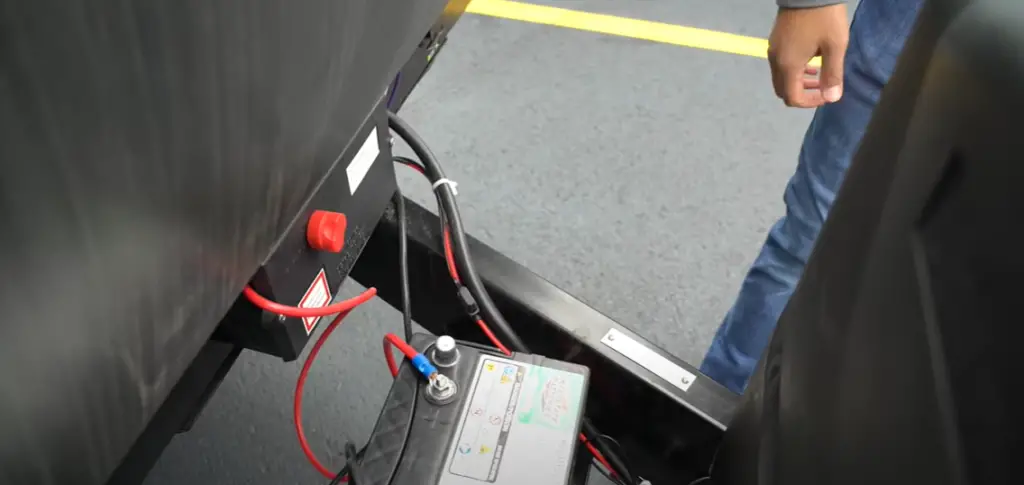
The RV Battery System: How to Test
If you own an RV, then you are well aware of the importance of the battery system in powering all your electrical appliances. The battery system of your RV is what keeps all of your appliances running while you are on the road. Hence, it is essential to keep it in tip-top condition. Testing your RV battery system may seem like a daunting task, but it is essential if you want to avoid any inconvenience or breakdowns while out on the road. With that said, now we will explore some simple ways to test your RV battery system to ensure that it is working effectively.
Step 1. Visual Inspection: The first step in testing your RV battery system is through a visual inspection. Look for any corrosion or damage on the terminal posts and check for any cracks on the battery casing. If any of these is present, replace the battery immediately. Also, check the cables and connections for any damage or deformation, as they can affect the battery’s performance.
Step 2. Load Testing: Next, you can perform load testing on your RV battery. This involves applying a load to the battery and measuring the voltage drop over time. You can accomplish this by using a battery load tester, which is easily available in any auto parts store. Start by disconnecting the battery and connecting the load tester to the battery posts. Set the tester to the 50 percent discharge rate and wait for the reading. If the tester reads below 10 – 12 volts, then your battery may need replacing.
Step 3. Voltage Testing: Another simple way to test your RV battery system is through voltage testing. This is a quick check that you can perform with the help of a multimeter. Set your multimeter to DC voltage, and then connect the wires to the battery posts with the red wire on the positive post and the black wire on the negative post. The battery should have a reading of 12.6 – 12.8 volts, indicating that it is fully charged. If the reading is anything below this, it may be time to recharge or replace the battery. [2]
Step 4. Hydrometer Testing: For older RV batteries, hydrometer testing may be the best way to test your battery’s condition. A hydrometer measures the specific gravity of the battery’s electrolyte, which is a measure of the battery’s charge. To perform a hydrometer test, use a turkey baster to extract some electrolyte from each cell of the battery and then measure it in the hydrometer. A reading of 1.265 means that the cell is fully charged, while a lower reading indicates that it needs charging or replacing.
Step 5. Tilt Test: Finally, the tilt test is an easy way to check if your RV battery is functioning correctly. Remove the battery from its compartment and tilt it to a 45-degree angle in all directions. If there are no signs of leakage or bubbling from any of the battery cells, it is likely that your battery is still in good condition.
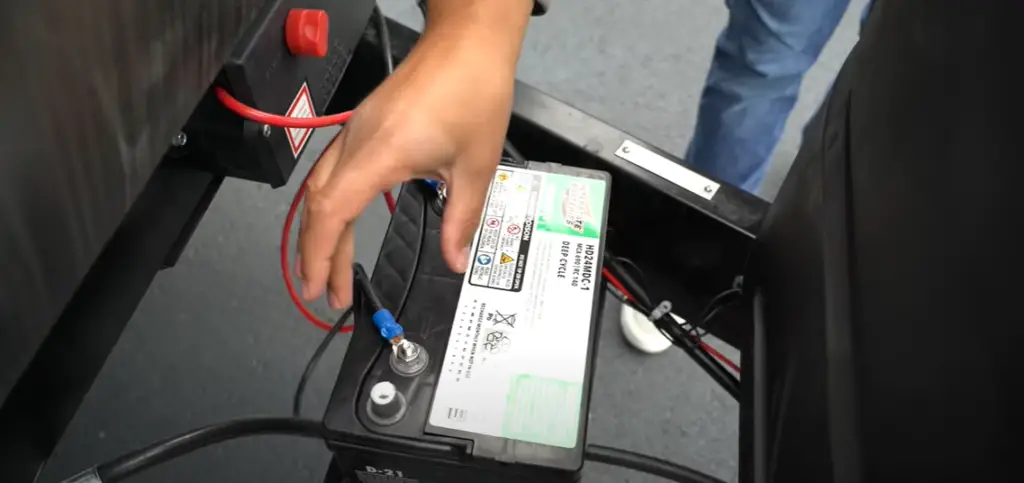
How to See That RV Battery Isn’t Fully Charged
As a proud owner of an RV, you must know that one of the most important components of your recreational vehicle is the battery. After all, it’s what powers your RV’s electronics, appliances, and other essential devices that make life on the road comfortable and convenient. However, a dead or drained battery can quickly turn your dream road trip into a nightmare. That’s why in this part, we’ll show you how to tell if your RV battery isn’t fully charged and how to avoid running out of power unexpectedly.
One of the easiest ways to see if your RV battery is fully charged is to get a voltage reading. A 12-volt battery that’s completely charged should read around 12.6 volts or above. If your reading is lower than 12.6 volts, it means that your battery is either partially charged or nearly empty. You can use a digital multimeter to get a precise voltage reading. Make sure to turn off all the electrical appliances in your RV before doing the test.
Sulfation is a common issue that can reduce RV battery performance and lifespan. It occurs when the battery’s lead plates are covered with lead sulfate crystals that prevent the battery from holding a full charge. You can spot sulfation by looking for visible signs on the battery’s surface, such as a white powder or crystal deposits. Regularly inspecting your RV battery for sulfation can help you catch this issue before it drains your battery’s power.
When your RV battery isn’t fully charged, it can produce strange noises, such as a clicking or humming sound. These noises are usually caused by the battery overworking or trying to produce more power while undercharged. If you suspect that your battery is underperforming, listen for these sounds the next time you plug in your appliances or start your engine. If you hear any abnormal noises, it’s probably time to charge or replace your battery.
Preventing battery failure and underperformance is all about maintenance. Regularly inspect your RV battery for signs of damage, corrosion, or sulfation. Clean the terminals, check the fluid levels, and ensure that your battery is securely fastened. Most importantly, recharge your battery regularly, especially if you’re not using your RV for prolonged periods. Batteries lose some of their charge over time, even when not in use.
Possible Problems with RV Converter and Their Solutions
If you are an RV enthusiast, then you know that RV converters play a crucial role in your recreational vehicle. They are responsible for providing power to all the electrical appliances in your RV, including the lights, television, refrigerator, and other essential equipment. However, like most electrical appliances, RV converters are not immune to problems. Let’s discuss some of the most common issues that arise with RV converters and their solutions.
Overheating
One of the most common issues with RV converters is overheating. This occurs when the converter becomes overloaded due to too many appliances being used simultaneously, resulting in the unit shutting down or failing altogether. To avoid this, ensure you do not overload the unit with too many appliances. It’s especially crucial to avoid using high-power usage appliances like hair dryers, microwaves, and air conditioners simultaneously with other appliances. Ensure your appliances are in excellent condition to prevent them from consuming too much power and increase the converter’s load.
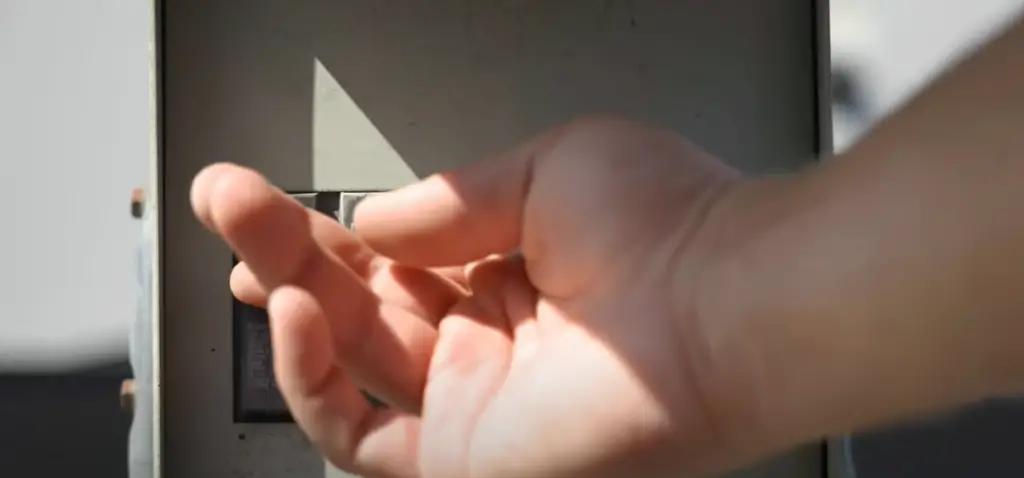
Noisy Operation
Another common issue with RV converters is a noisy operation. While it’s normal for the converter to produce a slight humming sound, some RV converters tend to become excessively noisy. This noise can significantly affect your RV’s comfort and can be disturbing to you and your neighbors in a campground. A solution to this would be to replace the RV converter fan. The fan could produce noise when the blades are worn or loose, or the mounting bolts are loose. The replacement process is easy and can be done on your own.
Tripping Circuit Breakers
Circuit breakers prevent electrical overloading and prevent your RV wiring from melting or catching fire. Tripping of the breakers is common, especially when the converter overloads. A converter that continuously trips the breakers needs attention, and we recommend having it checked by a professional electrician. A faulty converter can result in overheating, leading to furnace and water heater failure, which can cause significant damage.
Inconsistent Voltage
Inconsistent voltage, also known as low voltage or voltage drops, can lead to electrical appliances failing or, worse, overloading the converter. This occurs when the AC power source to your RV is weak or insufficient, resulting in a low voltage power supply to your RV appliances. A solution to this issue is to replace the battery or use a better AC power source, like connecting to a higher-voltage power outlet and limiting appliance use to avoid overworking the RV converter.
Battery Drainage
Lastly, battery drainage is another common issue with RV converters. The converter is supposed to recharge the battery and maintain it in excellent health. Still, a faulty RV converter can overcharge or undercharge the battery, shortening its lifespan or failing to hold a charge. To avoid this, check your battery health regularly and recharge it whenever possible. Battery draining issues could be an indication of a faulty converter, and in such instances, have a professional electrician check and diagnose your converter’s problems to avoid further damage.
An RV converter plays a crucial role in your RV’s proper functioning; it’s not immune to various problems. By familiarizing yourself with the common issues and knowing the solutions to handle them, you can enjoy your RV trip without any electrical hitches. Some conversion repairs can be simple, while others require professional electrical expertise. Regular RV inspection and maintenance can avoid costly major repairs and keep your converter in optimum condition.
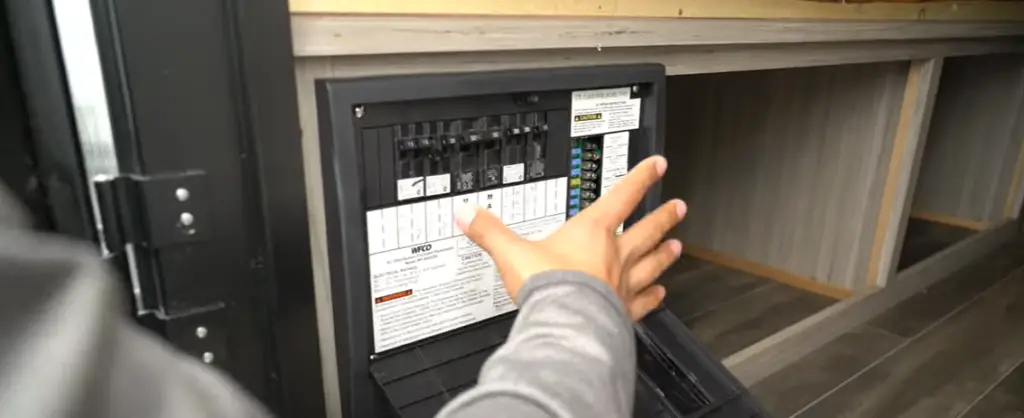
The Reasons Why RV Converter Doesn’t Charge the Battery and How to Prevent It
Have you ever encountered a drained battery while on the road? It could be frustrating, especially when you’ve relied on your RV converter to charge it up. Unfortunately, if you’re in this situation, you’re not alone. A lot of RV enthusiasts have experienced this before. But why does it happen?
Overuse
Your RV’s electrical system has limits, and if you happen to overload it with too many appliances or devices to operate at once, it may cause your converter to shut down or undercharge your battery. Overuse usually leads to converter burnouts, making it less effective in charging your battery. Checking your RV manual or consulting an expert to ensure that you don’t exceed the recommended electrical output will help prevent this issue.
Poor connection
A poor connection between the RV’s onboard charger and battery can lead to undercharging. Faulty or corroded cables may cause an interruption in the flow of volts through the circuit, hence poor connection. Regular inspection, cleaning, and replacing of old cables can help keep the connection intact. Also, ensure that the battery cables are appropriately secured to prevent any loose connections. [3]
Defective battery
The battery is the backbone of the RV’s electrical system. A defective battery can lead to an undercharge from the converter. You may also notice a bulge or leak from the battery terminal. In this case, replacing the battery with a new one will solve the problem. Before replacing it, ensure that you check the battery voltage to verify that it’s the culprit.
Wrong converter size
RV converters are not one-size-fits-all. Using the wrong converter size for your RV can spell disaster. If you purchased an undersized converter, it may not be able to handle the number of batteries in your RV, and overloading it can lead to converter undercharging or burnouts. Purchasing the correct size of converter will help ensure your battery is charged correctly.
Converter malfunction
If all of the above are checked and ruled out, it could be that the converter itself is malfunctioning. A failed converter may cause no charge to flow into the battery or even damage it. In this case, replacing the converter is your best bet.
Your RV battery is the heart of your RV’s electrical system. Understanding how your converter charges it up is a crucial aspect of maintenance. In this blog, we’ve discussed the reasons why your RV converter may not be charging your battery, from overuse to a defective battery. If you encounter any issues, it’s always better to consult an expert and perform regular checks to prevent any future problems. Doing so will ensure that you have a reliable source of power while on the road.
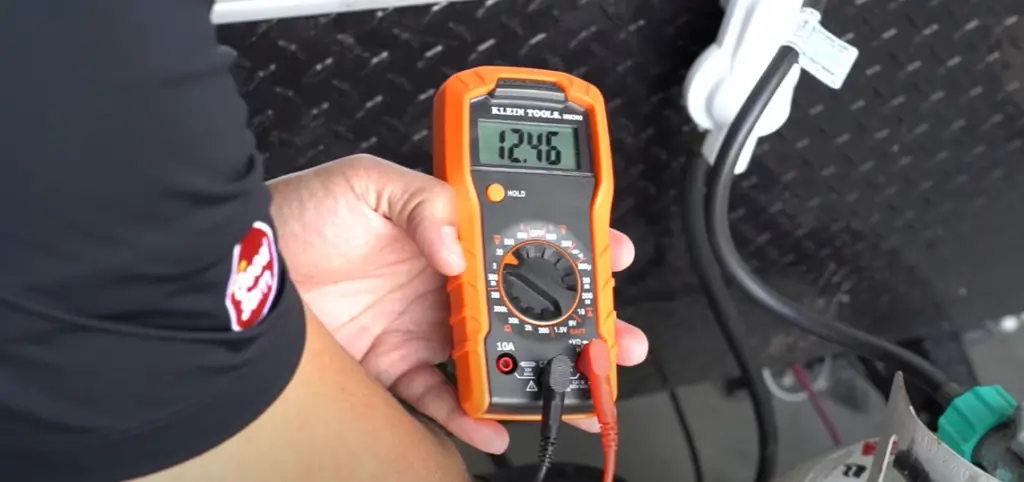
FAQ
Why is my RV converter not working?
One common cause is a blown fuse, so the first thing you should check is the fuse box. Make sure that all the fuses are intact and replace any damaged ones. Another reason that your converter might not be working is that there might be some loose wiring. Check all the wiring in your RV’s electrical system, making sure that everything is connected securely. If neither of these solutions works, then there could be a malfunction in the converter’s internal components, which would require a professional to diagnose and repair.
Will an RV converter charge a dead battery?
Yes, an RV converter can charge a dead battery. RV converters are designed to convert the AC power from the campground hookup to DC power, which charges the battery. However, it’s essential to note that it will take time to charge the battery, depending on its size and how dead it is. It’s always good to carry a battery charger in your RV for emergencies.
How do I know if my RV Converter isn’t working?
The easiest way to know if your RV converter isn’t working is to check your battery’s voltage when it’s under a load. Normal voltage is around 12.6 volts, but if it falls below 12 volts, it means that it’s not holding a charge. If your battery isn’t charging correctly, then your RV converter might not be working correctly.
Useful Video: Why Won’t My Battery Charge? | RV Troubleshooting
Conclusions
In conclusion, an RV converter not charging your battery can be a significant issue, especially when you are on the road. However, with a few steps, you can fix it without calling for a professional. Always ensure you check the battery terminal, fuse, converter output, reverse polarity, and converter wiring. By doing so, you will get your RV converter charging your battery and get back to enjoying your RV.
References:
- https://www.cruiseamerica.com/rv-adventures/rv-lifestyle/how-do-you-know-if-your-rv-converter-is-bad#:~:text=When%20you%20plug%20your%20RV,into%2012%2Dvolt%20DC%20power.
- https://www.wikihow.com/Check-Your-RV-Battery
- https://www.rvingknowhow.com/rv-converter-not-charging-battery/#

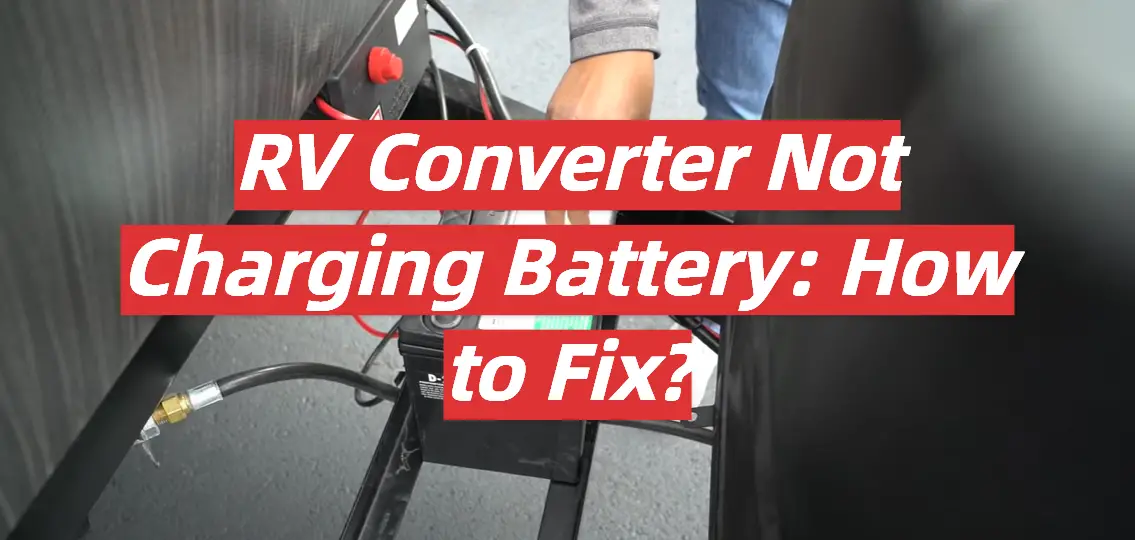

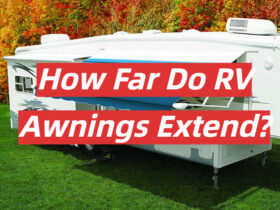

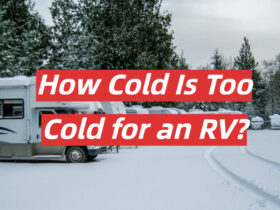
Leave a Reply